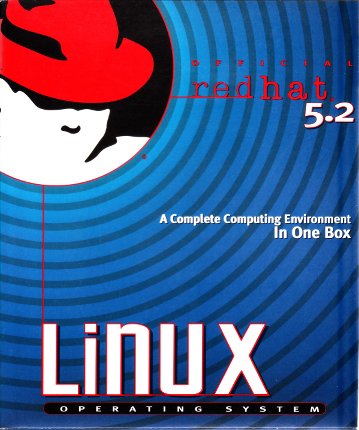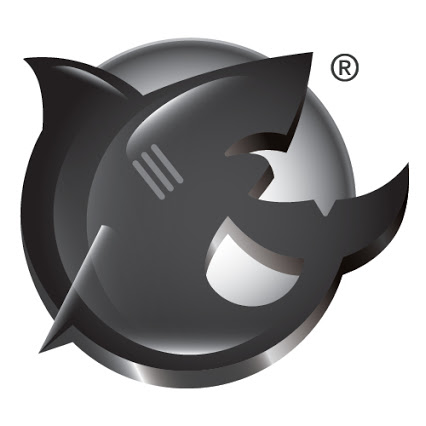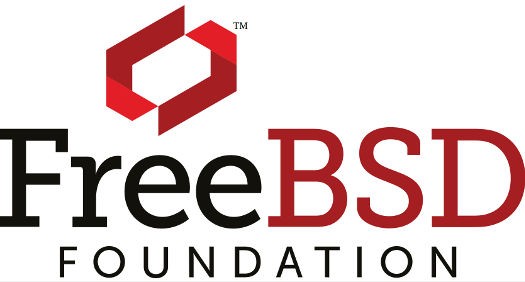FOSS Week in Review A few months back I was thinking that reporting on FOSS wasn’t as fun as it once was. As a matter…
Posts published in “Operating Systems”
Ubuntu Coming to Windows 10
Business, Distros, News and Operating Systems
In its quest to become the Microsoft of the Linux world, Ubuntu and Microsoft are expected to announce today that Ubuntu will soon run on Windows 10.
Holy crap!
In Friday’s Week in Review I jokingly opined that I wouldn’t be surprised to see “Ubuntu for Windows” as a move by the folks at Canonical as part of their plans for world domination. Guess what? It’s really happening.
In an article published Tuesday, Steven J. Vaughan-Nichols writes that “[a]ccording to sources at Canonical” a deal has been worked out between Ubuntu’s parent company and Microsoft that will lead to the GNU/Linux distro being able to run alongside Windows 10. According to Vaughan-Nichols, “This will not be in a virtual machine, but as an integrated part of Windows 10.”
Christine Hall has been a journalist since 1971. In 2001, she began writing a weekly consumer computer column and started covering Linux and FOSS in 2002 after making the switch to GNU/Linux. Follow her on Twitter: @BrideOfLinux
Free Tech Refresher: OSS Isn’t Always FOSS
Business, Community, Copyright, Operating Systems and Software
In recent years, it has become common for the terms “open source” and “FOSS” to be used interchangeably. While it’s true that all FOSS is also open source, it’s also true that being open source doesn’t necessarily mean it’s FOSS.
In the early 21st century, practically anyone using GNU/Linux knew the difference between proprietary, open source, and free and open source software. In those days distinguishing between proprietary, freeware, shareware and truly free software was a piece of cake. This was in large part due to the fact that open source was a relatively new concept, with the term first receiving widespread use in 1998. There were other reasons as well, mostly having to do with the Linux users of the day.
Hardly anybody installed Linux without doing some research first, and very few installed Linux expecting it to look and act like Windows. Although Windows 95 had been out five or more years, most users making the leap to Linux were people who cut their teeth on the command line and who remembered when 640 KB was the absolute amount of RAM in an “IBM compatible,” an ancient name for the PC.
They also weren’t strangers to configuring their systems. Many users of the day could still remember installing “expanded memory” on MS-DOS machines to allow RAM to be increased above the 640 KB memory barrier to a full megabyte, “extended memory,” which allowed RAM to be extended beyond that newly established megabyte absolute, or DriveSpace to encrypt on-the-fly and nearly double the amount of data on the hard drives of the day that might be as small as 40 MB.
A majority of users could remember when home computers were rarely networked, with those that were by way of “walled garden” services such as CompuServe, Prodigy, America Online or private bulletin boards.
Christine Hall has been a journalist since 1971. In 2001, she began writing a weekly consumer computer column and started covering Linux and FOSS in 2002 after making the switch to GNU/Linux. Follow her on Twitter: @BrideOfLinux
FOSS Week in Review
While Facebook and Google work to better identify you by your typing skills and Red Hat counts the bucks from its best ever year, Ubuntu finally makes it possible to launch from the bottom.
If you depend only on mainstream tech media’s coverage of FOSS, you might be excused for thinking that the biggest news of the week revolved either around Ubuntu’s new summer home in the world of BSD — which isn’t a Canonical project by the way — or Microsoft’s open sourcing of every scrap of code it can find that might benefit Microsoft if it were open sourced.
In my not-so-humble opinion, both of these stories were yawners. Of course somebody’s attempted to create a BSD *buntu. There are already Ubuntu flavors for every single desktop environment known to mankind, as well as a few DEs that are figments of Canonical’s imagination, so where else was there to go but to another operating system? What’s next? Given the way Ubuntu has been cozying up to Microsoft, I’m expecting Ubuntu for Windows.
As for Microsoft’s continuing open sourcing? There’s nothing new here, move on. When Redmond loves Linux and open source enough to quit suing open source projects over patents it claims it has — that will be news.
Christine Hall has been a journalist since 1971. In 2001, she began writing a weekly consumer computer column and started covering Linux and FOSS in 2002 after making the switch to GNU/Linux. Follow her on Twitter: @BrideOfLinux
A Screencast Look at GalliumOS
The Screening Room
Our video editor takes a look at GalliumOS, a distro designed especially for use on Chromebooks.
When a group of talented people get together to create a Linux distribution optimized for use on Chromebooks, a suitable way of giving thanks is to install that operating system on a Chromebook and make a screencast showcasing the operating system at work. Back in December 2015, I did that with the outstanding GalliumOS distro.
For the past 10 years, Phil has been working at a public library in the Washington D.C.-area, helping youth and adults use the 28 public Linux stations the library offers seven days a week. He also writes for MAKE magazine, Opensource.com and TechSoup Libraries. Suggest videos by contacting Phil on Twitter or at pshapiro@his.com.
Busy Week: UbuntuBSD, FreeNAS 9.10 Released
Larry the BSD Guy
While the entire BSD world has been buzzing over Ubuntu’s BSD release, the FreeNAS project has been busy releasing version 9.10 as a major precursor to version 10.
Most of the attention this week has been around the release of UbuntuBSD, which in and of itself is a noble effort for those who want to escape from systemd, as the developers have dubbed it according to Phoronix. This manifestation joins Ubuntu 15.10 Wile E. Coyote — sorry, Wily Werewolf — to the Free BSD 10.1 kernel.
To its credit, UbuntuBSD uses Xfce as its default desktop. It also joins a list of other marriages between Linux distros and the BSD kernel: Debian GNU/kFreeBSD, ArchBSD (now PacBSD), Gentoo/BSD and others along the FOSS highway. It’s worth a look and we’ll be giving it a test drive sometime soon.
But for now, there’s a more interesting and significant development in the BSD realm rising on the horizon.
A Usability Study of GNOME
Gina Dobrescu and Jim Hall
“Thou shalt make thy program’s purpose and structure clear … for thy creativity is better used in solving problems than in creating beautiful new impediments to understanding.”
~ “The Ten Commandments for C Programmers” by Henry Spencer
How easily can you use your computer? Today, the graphical desktop is our primary way of doing things on our computers; we start there to run web browsers, music programs, video players, and even a command line terminal. If the desktop is too difficult to use, if it takes too many steps to do something, or if the cool functionality of the desktop is hidden so you can’t figure out how to use it, then the computer isn’t very useful to you. So it’s very important for the desktop to get it right. The desktop needs to be very easy for everyone to use.
Whenever we think of how easily you can use a program, we’re really talking about the usability of that program. Developers sometimes discount usability and think of usability as making things look nice instead of adding new, useful features. Other times, developers assume usability is too difficult, something that only experts can do. But usability is a very important part of software development.
Why Dell Should Offer Linux Across Product Line
Dell has been quite successful recently selling a line of computers preinstalled with GNU/Linux. So much so that the company posted a blog on March 10 extolling the fact that Precision 5510, 3510, 7510 and 7710 mobile workstations are all available worldwide with Ubuntu preinstalled. What’s more, the company doesn’t hide Linux availability in the fine print or make potential customers find a special page to order from, which had once been its practice. Just go to the page for Precision laptops, find the one you want and tic the Ubuntu Linux option in the Operating System box in the Build My Dell section.
 Here’s the big surprise, especially for those of you trying to stay on top of the Microsoft tax: Choosing Ubuntu over Windows comes with a $101.50 reduction in price. That’s quite a discount — much, much more than I remember back in 2007 when Dell made its first foray into offering Linux.
Here’s the big surprise, especially for those of you trying to stay on top of the Microsoft tax: Choosing Ubuntu over Windows comes with a $101.50 reduction in price. That’s quite a discount — much, much more than I remember back in 2007 when Dell made its first foray into offering Linux.
Dell isn’t targeting the everyday consumer with these offerings, but has its sights set on the developer set, which is fair enough given that many Linux users ply their trade in IT. Indeed, as Agam Shah pointed out Friday on CIO, the company sees its Linux line as an opening “for the open-source community to develop tools, drivers and software for laptops, tablets and other emerging form factors.”
Christine Hall has been a journalist since 1971. In 2001, she began writing a weekly consumer computer column and started covering Linux and FOSS in 2002 after making the switch to GNU/Linux. Follow her on Twitter: @BrideOfLinux
FreeBSD Foundation Logo, Website Get New Look
Larry the BSD Guy
Sometimes you have to quit cleaning your code long enough to clean your room. The people at the FreeBSD Foundation have already been doing some spring cleaning. They’ve even called the decorator.
Drumroll, maestro…
There’s a new look at the FreeBSD Foundation, with a new logo and website. The changes are intended to highlight “the ongoing evolution of the Foundation identity and ability to better serve the FreeBSD Project,” according to the post announcing the changes.
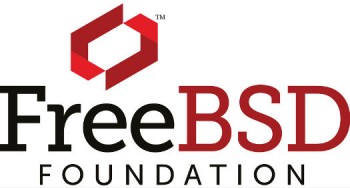
Logo used with permission from the FreeBSD Foundation.
Microsoft Does to Oracle What Oracle Tried To Do to Red Hat
In 2006, Oracle began trying to abscond with RHEL’s paying user base. On Thursday, Microsoft announced that it’s now going to give Oracle a similar treatment. What’s that they say about paybacks?
Microsoft has declared war on Oracle, which is the type of story I wish was on Netflix. If it were, I’d make some popcorn, mix it with some M&Ms, sit back and binge watch. As it is, I’ll have to watch it unfold the old fashioned way, as it happens.
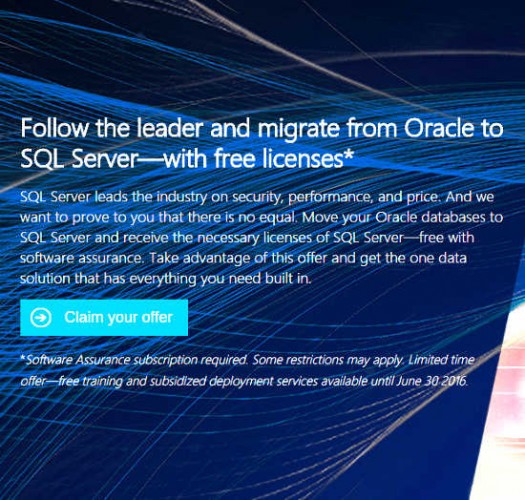
Some of you might remember the hostilities which broke out between Red Hat and Oracle after Red Hat acquired JBoss. Until then, the two companies had worked hand in hand in something of a partnership which saw Red Hat helping its customers get Oracle’s business stack up and running on RHEL servers. According to news reports of the day, Oracle’s head honcho, Larry Ellison, thought he had Red Hat in his back pocket and happily referred clients who were interested in migrating Oracle’s stack to Linux from Unix or Windows to the Raleigh, N.C. based company.
Christine Hall has been a journalist since 1971. In 2001, she began writing a weekly consumer computer column and started covering Linux and FOSS in 2002 after making the switch to GNU/Linux. Follow her on Twitter: @BrideOfLinux



